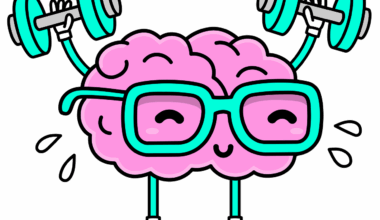How Sports Psychologists Address Burnout in Athletes
Burnout in athletes is a growing concern in the world of sports today. It is marked by physical, emotional, and mental exhaustion, as well as a feeling of reduced accomplishment. This condition can significantly impact an athlete’s performance, engagement, and overall well-being. Athletes face intense pressures to succeed, whether from themselves, coaches, or sponsors. Sports psychologists play a vital role in helping athletes manage these pressures, providing strategies to prevent and recover from burnout. Understanding the psychology behind burnout is essential for creating effective interventions. Athletes may feel overwhelmed by their training schedules, competition demands, expectations, and lifestyle changes. Consequently, recognizing the early signs of burnout becomes crucial for coaches and psychologists. Common signs include fatigue, decreased motivation, and feelings of helplessness. Early intervention can prevent long-term effects on an athlete’s career and mental health. Sports psychologists utilize various techniques, including cognitive behavioral strategies, mindfulness, and relaxation techniques, to help athletes cope. They work closely with athletes to establish a balance between training and recovery. Encouraging open communication about feelings can also significantly aid in combating this issue.
One of the most effective strategies sports psychologists employ is teaching athletes how to recognize their limits. Setting realistic goals is critical in this regard. Athletes often push themselves beyond their physical and psychological limits, leading to exhaustion and burnout. Sports psychologists help athletes understand the importance of setting sustainable goals, which contributes to their overall success and mental health. By encouraging a focus on short-term achievements rather than solely long-term outcomes, psychologists can promote positive self-recognition. Athletes learn to celebrate small victories instead of always striving for the ultimate triumph, which can decrease their stress levels. Another powerful technique used by sports psychologists is visualization. Athletes are guided through mental imagery exercises that help them picture their success in training and competition. This mental rehearsal not only enhances performance but also reduces anxiety and builds confidence. Furthermore, psychologists emphasize the significance of relaxation techniques, such as deep breathing and progressive muscle relaxation. These methods can help athletes unwind and create a more balanced mental state. Regular mental health check-ins can ensure athletes are on track, making it easier to address any emerging signs of burnout.
In addition to adopting personal strategies, teamwork and collaboration with coaches are fundamental components in addressing athlete burnout. Sports psychologists work alongside coaches to educate them about the signs of burnout and the importance of mental health. This collaborative approach integrates psychological well-being into the overall training program. Coaches play a pivotal role in fostering an environment where athletes feel safe discussing their mental states. By promoting a culture that prioritizes mental health, athletes are more likely to seek help when needed. Open communication and support from coaches can significantly reduce stigma surrounding mental health issues in sports. Moreover, incorporating recovery periods into training schedules is essential. Sports psychologists advise athletes on the importance of rest and recovery for both body and mind. This includes scheduled time off from rigorous training and competitions, allowing athletes to recharge physically and mentally. Additionally, educators and psychologists can work together to implement workshops focused on stress management and coping strategies. This proactive approach keeps athletes informed and equipped with the tools necessary to combat burnout effectively. These educational efforts help build resilience among athletes, preparing them for eventual challenges.
Mindfulness and Mental Resilience Training
Mindfulness training is another key area where sports psychologists make substantial contributions. It involves encouraging athletes to be present in the moment, allowing them to focus on their thoughts and feelings in a positive light. This practice can significantly reduce stress and anxiety, which are often contributors to burnout. Mindfulness helps in enhancing emotional regulation, enabling athletes to respond to pressures more effectively. Techniques such as meditation, breathing exercises, and yoga are commonly integrated into sports psychology programs. These mindfulness techniques not only aid in emotional resilience but also improve concentration and attention in high-pressure situations. Additionally, sports psychologists work with athletes to develop coping strategies tailored to their experiences. By understanding how athletes respond to stress, psychologists can design personalized programs that foster resilience. Initiating regular training in coping strategies equips athletes with practical tools to manage challenges both on and off the field. The integration of mental resilience training underscores the equal importance of mental and physical preparation in sports. This holistic approach ensures that athletes remain motivated and engaged with their sports while balancing pressures and expectations.
Long-term strategies for preventing burnout require the commitment of both athletes and their support teams. Regular monitoring of an athlete’s mental health should be a priority within all training programs. Sports psychologists suggest the implementation of check-in sessions, where athletes can discuss their mental health and training experiences. This can create a supportive environment where athletes feel heard and valued. Open discussions about mental health normalize the experience and encourage proactive approaches toward overcoming challenges. Furthermore, it is vital for athletes to maintain social connections outside of sports. Building relationships beyond the athletic sphere can provide emotional support and a sense of belonging. Engaging in hobbies, spending time with family and friends, and pursuing interests unrelated to sports can all help athletes develop a balanced lifestyle. Balancing competitive drives with fulfilling life experiences is crucial for long-term happiness. Sports psychologists emphasize that athlete identity should not solely be tied to sports accomplishments. By diversifying their identities, athletes can mitigate the impacts of setbacks and reduce stress. This practice fosters a healthier psychological framework, allowing athletes to thrive in their athletic and personal lives.
Effective collaboration between sports psychologists, coaches, and athletes is vital in addressing the complexities of burnout. Each party has a unique role in supporting an athlete’s mental health, and their working relationship should focus on ensuring the athlete’s well-being. Sports psychologists offer valuable insights based on research and experience, while coaches provide day-to-day guidance and motivation. Perhaps most importantly, athletes are encouraged to take an active role in their mental health journey. This integrated approach emphasizes the necessity of a supportive network. Sports psychologists advocate for regular team discussions focused on mental well-being and performance. Establishing an open feedback loop allows athletes to share their experiences. By fostering this sense of community, athletes can feel empowered and understood, which reinforces their mental health. This collaborative model can extend beyond team environments to include family members who play a crucial role in the support system. Involving families in discussions can create a comprehensive structure that enhances the athlete’s resilience, helping them navigate their sporting careers. It is through this united effort that athletes can successfully combat burnout and reach their full potential.
In conclusion, addressing burnout in athletes requires a multifaceted approach led by sports psychologists. These practitioners are skilled in providing essential tools and techniques to equip athletes in managing their mental health. Through tailored interventions, such as mindfulness training, goal-setting, and strong communication, they enhance athletes’ resilience. Importantly, collaboration between psychologists, coaches, and athletes fosters an environment of openness and support. By prioritizing mental health alongside physical training, athletes are positioned for long-term success and fulfillment. Recognizing and managing burnout is not just about preventing decline but also striving for continual growth and achievement. Education on mental health awareness should become a core component of all sports programs at every level. This will ensure athletes possess the knowledge necessary to engage with their mental health proactively. The evolution of support systems surrounding athletes is crucial to fostering an atmosphere where they can thrive. Mental health is just as critical as physical health in sports, and both need equal attention. Ultimately, focusing on psychological resilience can lead to improved performance and overall satisfaction in athletics.






